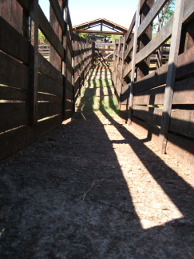Brazil is the fourth largest pig-farming country in the world.
Most traditional pig farms in the south of Brazil are small and medium-sized (with fewer than 250 sows), but they are increasingly becoming part of the network of larger companies. Sadly, intensification and the use of some systems and practices with negative effects on animal welfare have expanded in Brazil too. Overcrowding, mutilation and gestation crates are widespread and still legal across the country.
Nevertheless, a step in the right direction has been taken by the Ministry of Agriculture, Livestock and Supply (MAPA), which has started to promote explicitly the group housing of sows as an alternative to crates.
This decision – like the establishment of the Animal Welfare Commission of the Ministry – has been based both on increasing pressure from Brazilian society to improve farm animal welfare and on international market considerations.
Liziè Buss, a member of the Ministry’s Animal Welfare Commission, is quoted on the Ministry’s website: “Producers and companies that meet the requirements of animal welfare guidelines are in a privileged position in negotiations with buyers. That’s because meeting the requirements of animal welfare guidelines is converted into an intrinsic characteristic of the product, representing a potential economic value and higher ethical quality.”
You can read more on the MAPA website (in Portuguese).
Free subscription to the AnimalWelfareAndTrade Newsletter: click here
Follow AnimalWelfareAndTrade on Twitter: click here
Follow AnimalWelfareAndTrade on Facebook: click here


